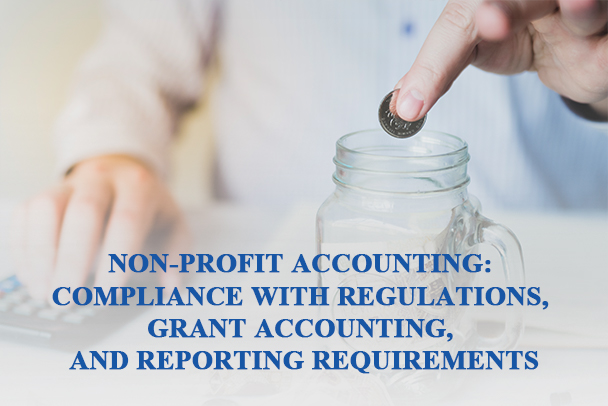
Running a non-profit organization involves unique accounting challenges that require a deep understanding of specific regulations, grant accounting practices, and rigorous reporting requirements. This blog post will guide you through the essentials to ensure your non-profit remains compliant and transparent.
1. Understanding Non-Profit Regulations
Non-profit organizations are subject to a variety of federal, state, and local regulations. Here are some key areas to focus on:
a. Tax-Exempt Status: To maintain tax-exempt status under Section 501(c)(3) of the Internal Revenue Code, non-profits must operate exclusively for charitable, religious, educational, or similar purposes. Regularly review your activities to ensure they align with your mission and comply with IRS regulations.
b. Annual Filings: Non-profits must file an annual information return with the IRS, typically Form 990. This form provides transparency about your organization’s finances, including income, expenses, and executive compensation. Failing to file on time can result in penalties and loss of tax-exempt status.
c. State Compliance: State regulations can vary widely. Many states require non-profits to register with the state charity office and submit annual reports. Ensure you’re aware of and comply with your state’s specific requirements to avoid legal issues and maintain good standing.
2. Grant Accounting
Grant accounting is crucial for non-profits, as grants often come with specific restrictions and reporting requirements. Here’s how to manage them effectively:
a. Tracking Restricted vs. Unrestricted Funds: Grants can be either restricted (for a specific purpose) or unrestricted (for general use). It’s essential to track these funds separately to ensure compliance with donor intentions. Use accounting software that allows you to allocate and monitor these funds accurately.
b. Grant Budgets and Expenditures: Develop detailed budgets for each grant and track expenditures against these budgets. This practice ensures that funds are used appropriately and can help prevent overspending or misallocation of resources.
c. Reporting to Grantors: Grantors often require regular financial and performance reports. These reports should detail how funds were spent and the progress made toward the grant’s objectives. Maintaining accurate records and providing timely reports can build trust with grantors and increase the likelihood of future funding.
3. Reporting Requirements
Non-profit organizations must adhere to stringent reporting requirements to maintain transparency and accountability. Here are the key reports you should focus on:
a. Financial Statements: Prepare comprehensive financial statements, including the Statement of Financial Position (balance sheet), Statement of Activities (income statement), and Statement of Cash Flows. These documents provide a clear picture of your organization’s financial health and operations.
b. Statement of Functional Expenses: This statement breaks down expenses by function (e.g., program services, management, and fundraising). It helps donors and regulators understand how funds are being used to achieve your mission. Ensure expenses are categorized accurately and consistently.
c. Audit Requirements: Many non-profits are required to undergo an annual audit, especially if they receive significant federal funding or meet certain state thresholds. An independent audit provides assurance that your financial statements are accurate and comply with accounting standards.
4. Best Practices for Compliance and Reporting
To ensure compliance and maintain transparency, adopt the following best practices:
a. Strong Internal Controls: Implement robust internal controls to prevent fraud and ensure accuracy in financial reporting. This includes segregation of duties, regular reconciliations, and authorization procedures for expenses and payments.
b. Regular Training: Keep your staff and board members informed about non-profit accounting practices and regulatory changes. Regular training sessions can help ensure everyone understands their roles and responsibilities in maintaining compliance.
c. Use Specialized Software: Invest in accounting software designed for non-profits. These tools can help you manage restricted funds, track grants, and generate necessary reports with greater ease and accuracy.
d. Consult with Experts: Work with accountants and legal advisors who specialize in non-profit organizations. Their expertise can help you navigate complex regulations, prepare for audits, and address any compliance issues that arise.
By understanding and adhering to these regulations, accounting practices, and reporting requirements, your non-profit can build a solid foundation for financial health and integrity. Maintaining transparency and accountability not only helps fulfill your legal obligations but also strengthens the trust of donors, grantors, and the communities you serve.
About Us
Naples Taxes specializes in non-profit accounting, offering expert guidance on compliance, grant management, and financial reporting. Our team is dedicated to helping non-profits achieve their missions through sound financial practices. Contact us today to learn how we can support your organization.
Contact Information
Email:info@naplestaxes.com
Phone: 239-431-5755
Address: 5811 Pelican Bay Blvd Suite 205
Naples, FL 34108
Website: www.naplestaxes.com
